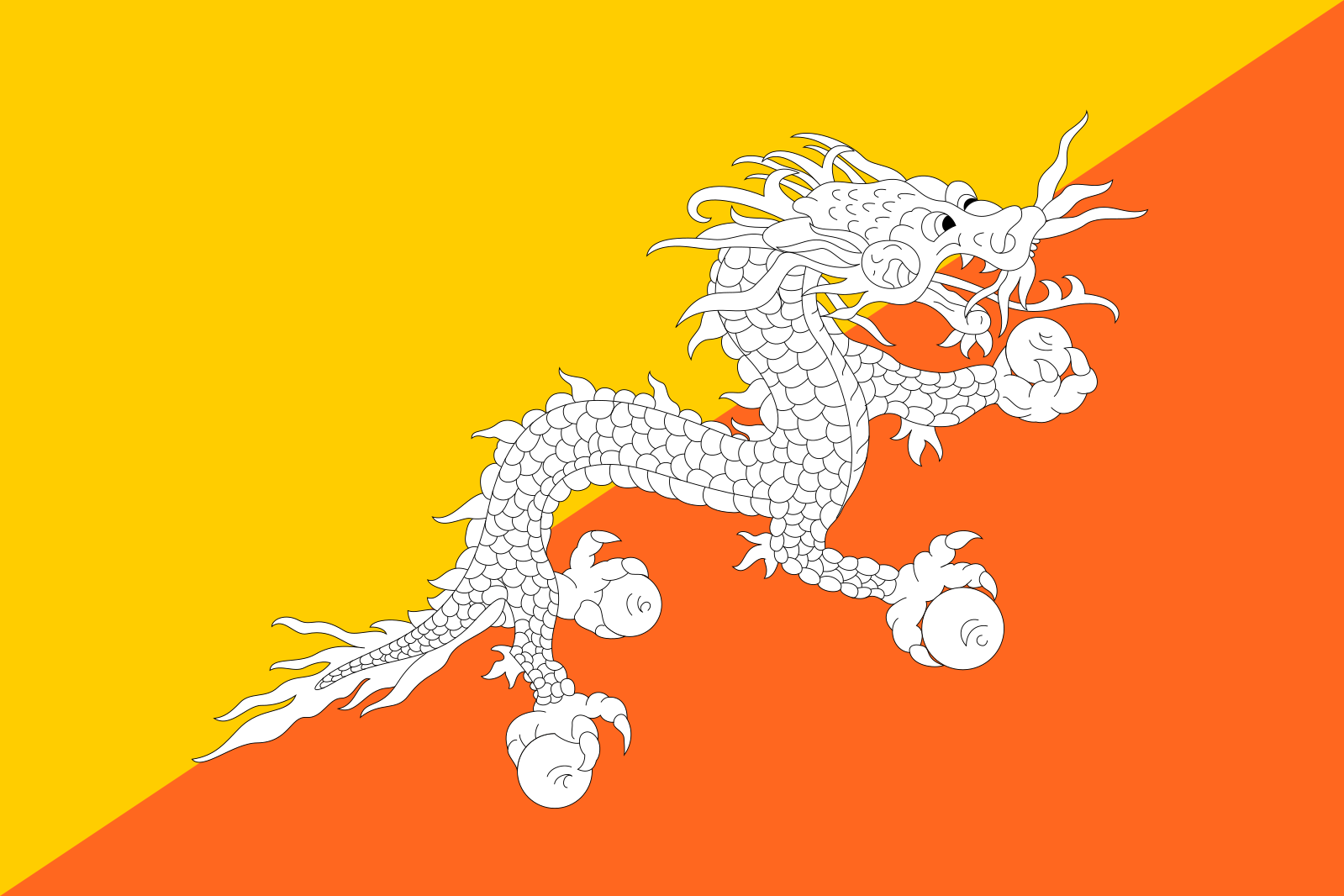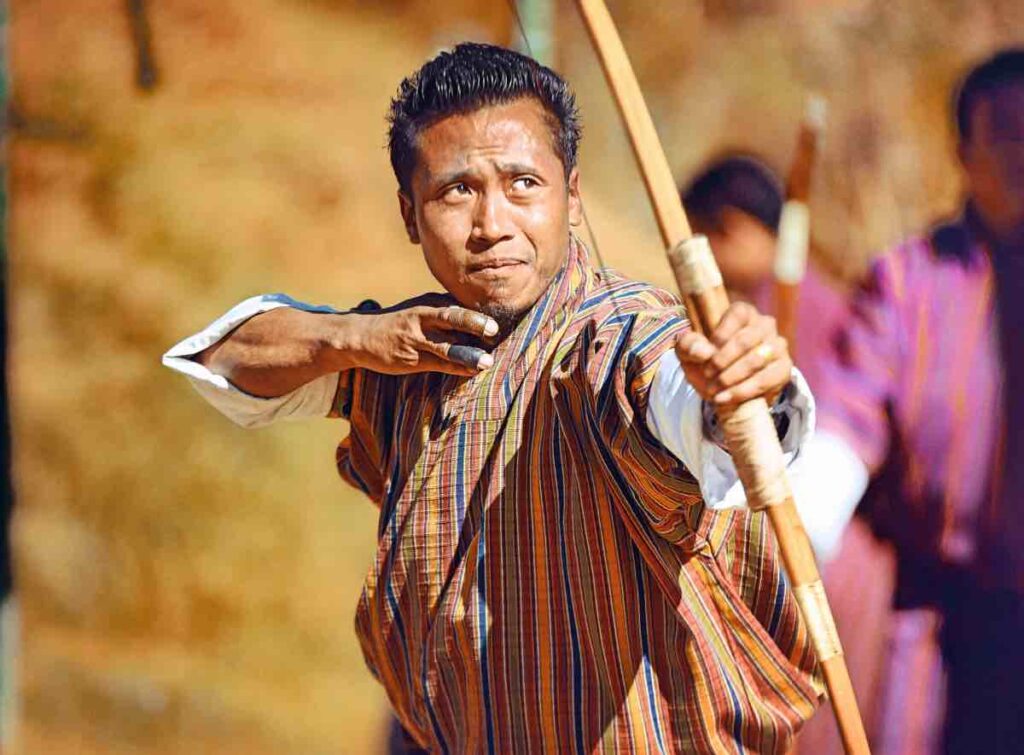Wanderlust
More Than Just a Sport: The Rich Cultural Tradition of Archery in Bhutan.
Have you ever seen Bhutanese archers in action? With their unique shooting style and colourful costumes, Bhutanese archery is a fascinating and rewarding sport to explore. Bhutan may be a small and remote country, but when it comes to the sport of archery, it’s a force to be reckoned with. The county has a deep and rich tradition of archery that dates back centuries, and its archers are known for their skill, precision, and competitive spirit.
So, armed with my insatiable curiosity and an uncanny knack for stumbling upon unique moments, I embarked on a journey to unravel the threads of Bhutan’s beloved pastime – archery. In this land of ancient fortresses and majestic peaks, archery is much more than just a sport. It’s a living, breathing testament to Bhutan’s history and a symbol of the enduring spirit of its people. Let me take your on a journey into what makes Bhutanese archery so unique and special, and how it has it evolved over the years to become such an important part of the country’s identity.
“Archery has been practiced in Bhutan for centuries, and it’s a source of national pride and identity.”

Unpacking the Rich Cultural Tradition of Archery in Bhutan
I’m not much of an archer. In fact, I’m pretty clumsy and uncoordinated. But when I visited Bhutan, I couldn’t resist trying my hand at shooting arrows. Little did I know that archery in Bhutan is more than just a sport – it’s a cultural tradition with deep roots in the country’s history and there is a sheer passion that fuels this centuries-old sport.
As I watched the archers take their positions, I noticed that their stance was unlike anything I had ever seen before. With feet planted firmly on the ground and their bodies angled slightly towards the target, the archers appeared rooted to the earth and I found myself captivated by the archers’ graceful movements and pinpoint accuracy. Their bows, crafted from bamboo and horn, seemed to be an extension of their whole body, like an inseparable connection between man and the elements.
But it was the moment of release that truly captured my imagination. With graceful fluidity the archers pulled back the bowstring and held their breath. In that moment, time seemed to stand still as they find their focus, their minds and bodies becoming one with the target some 100 metres away. And then, with a gentle exhale, the arrow takes flight.
Now, if I were to attempt such a feat, the results would undoubtedly be more comical than impressive. However, the precision with which they release their arrows is not just a display of skill, but also a reflection of the deep respect and reverence they hold for their ancient tradition.
A Glimpse Back in Time: Exploring the Origins of Archery in Bhutan
Historically, archery was an important part of Bhutanese warfare, and it played a key role in the country’s defense against invading forces. The history of archery in Bhutan dates back to the days of ancient warriors and mythical heroes, and a divine archer named Ling Gesar used his formidable skills to vanquish evil spirits and protect his people. While Gesar king of Ling, is believed to have originated from the Tibetan plateau, his heroic exploits were immortalised in folk songs and ballads, and his legend continues to inspire and shape Tibetan and Bhutanese remarkable cultural traditions.
Gesar is a revered figure in the mythology of the Tibetan plateau – including Bhutan – celebrated as a divine warrior king who ruled the ancient kingdom of Ling, and his epic deeds have been immortalised in what is considered as the longest epic poem in the world, the “Epic of King Gesar.”
According to the legends, Ling Gesar was sent to the human realm by the gods to protect the people from the forces of evil and to restore balance in the world. He was gifted with incredible archery skills and used these powers to vanquish countless demons and malevolent spirits that threatened the harmony of his kingdom. The tales of his heroic acts are still very much alive today, and he is regarded as a guardian deity and a symbol of bravery, wisdom, and compassion.
Many traditional Bhutanese practices can be traced back to the stories of Ling Gesar and his divine archery skills. Even today, the epic tales of his conquests continue to inspire and influence the techniques and rituals practiced by Bhutanese archers.
How Archery is Shaping Lives in Bhutan Today: a tradition with deep roots in the country’s history.
Archery has been practiced in Bhutan for centuries, and it’s a source of national pride and identity. In fact, the Bhutanese people are so passionate about archery that it’s considered the national sport, and it’s played by everyone from village farmers to high-ranking officials. But the sport is not just a relic of the past and it is considered more than just a game – it’s a way of life.
Today, it continues to play a vital role in the lives of the Bhutanese people, connecting them to their ancestors and providing a sense of unity in the face of an ever-changing world. Archery remains a way for Bhutanese people to connect with their cultural heritage and with each other. It’s a way to build camaraderie and community, to blow off steam and have some fun during festivals, and to celebrate important occasions like weddings.
The archery matches are peppered with light-hearted banter, songs, and dances, and the atmosphere is always jovial. The archers take great delight in ribbing their teammates when a shot goes awry, often engaging in playful banter that echoes through the crisp mountain air. This is a side of Bhutan that few outsiders get to see, and as I joined in the local festivities, I couldn’t help but feel an overwhelming sense of gratitude for the warmth and generosity of the Bhutanese people.
In the land of the Thunder Dragon, where ancient traditions continue to thrive amid the rugged beauty of the mountains, the unique style of Bhutanese archery stands as a shining testament to the enduring connection between man, nature, and the power of the human spirit – and the sheer passion that fuels this centuries-old sport is mesmerising.
Bhutan’s Olympic Archers: A Look at the Country’s Journey to the World Stage
One of the highlights of the Bhutanese archery calendar is the annual Yangphel tournament, which is held in Thimphu, the capital city. which attracts teams from across the country. The tournament is a lively and colorful event, with traditional costumes, music, and dancing adding to the festive atmosphere.
From warriors to athletes, the Bhutan Archery Federation (BAF) is responsible for overseeing and promoting the sport of archery throughout Bhutan. Established in 1971, the federation’s main goal is to promote archery as a national sport and to help develop the skills and talents of Bhutanese archers at all levels. It is also responsible for organising local and regional competitions, as well as national tournaments and championships and works to increase public awareness of the sport.
In recent years, Bhutan has also achieved international recognition and Bhutanese archers have competed in the Olympics, the Asian Games, and other international competitions, with one of its most successful archers, Tshering Chhoden, who competed in the 2012 London Olympics and Karma, in the women’s individual archery tournament who represented Bhutan in the 2016 Rio de Janeiro Olympics and again in the Tokyo Olympics in 2020. A very inspiring journey of Bhutanese archers towards international recognition.
A Bright Future for Bhutanese Archery: The Country’s Potential to Become a Global Leader in the Sport > Interview of Karma >
Bhutanese archery is a fascinating and rewarding sport to explore. So why not try your hand at it during your next trip to Bhutan? You might just discover a new passion and gain a deeper appreciation for the country’s rich cultural traditions. Join me on my next adventure through the country’s rich and fascinating cultural traditions.

